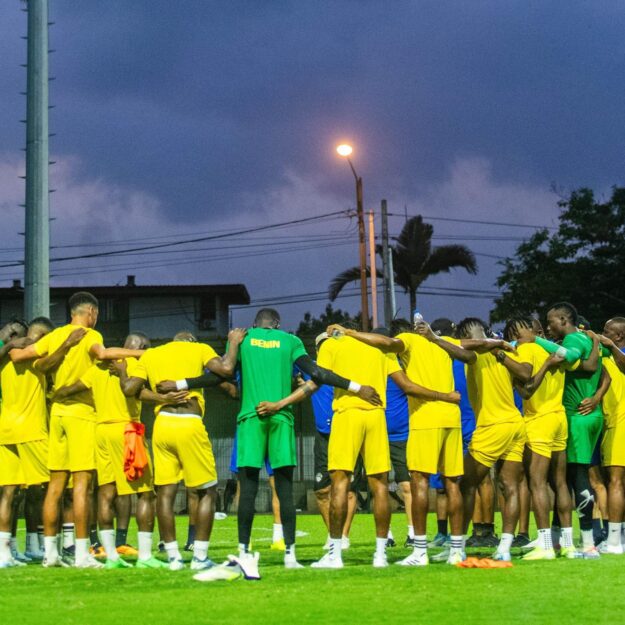
Steps by the Usmanu Danfodiyo University, Sokoto (UDUS) management to enforce the institution’s Dress Code is generating controversy between it and its students, who see the enforcement as as an imposition and an abridgement of their rights, ABIODUN JAMIU a 200-Level Political Science student reports.
No student saw it coming. Last last Friday, some new students of Usmanu Danfodiyo University, Sokoto (UDUS) who wore what the university management termed ‘indecent dressings’ and ‘unkempt appearances’ were sent back to their hostels to change into more befitting outfits.
That action sparked fresh arguments between aggrieved students and management on what constitutes an ideal dress code of the institution.
The affected students were ‘waylaid’ by the university joint task force led by the Chief Security Officer, Col. Abdullah Gwandu (rtd) and the Dean, Students’Affairs, Prof Aminu Mode, who checked students’ dressings on the main walkway to the university’s hall of residence.
Not only did they order some students home, they also shared fliers titled: ‘UDUS Dress Code’.
CAMPUSLIFE gathered that though the Dress Code is in the Students Handbook, the last time such handbook was distributed was during the 2014/15 academic session. What management does is share the fliers.
According to the fliers, the banned dressings include: dresses that expose the chest region, unbuttoned shirts, use of tight-exposing or transparent dresses, sleeveless shorts, worn-out trousers/skirts, heavy make-up and excessive jewellery.
Others include T-shirts with provocative messages, as well as sagging and wearing of shorts/miniskirts.
Male students are barred from wearing earrings, necklaces and perming or weaving of hair. They are also not to wear dark glasses during lectures except on medical ground. Similarly, their female counterparts are not allowed to wear shorts, except within the hostels.
Giving reasons for the new dress code, Mode decried the moral decadence among students, warning that those who fail to imbibe the new culture would be dealt with.
In an interview, Mode said: “We believe that the new students dress that way (indecently) because they don’t know. We would want you (CAMPUSLIFE) to sensitise and enlighten them more on the university norms. We also have some stubborn ones in higher levels.
“Most of them appear like that only on campus. Their parents do not allow them to dress the way they do. Why, then, should they dress anyhow in the university where character and learning is our watchword?” Mode asked.
According to him, the management’s decision is not based on religious sentiments, but borne out of the need to instill morality into the students as done in other institutions.
“There is no university in Nigeria be it public or private that promotes indecency. If you are not a Muslim, we are not telling you to go and wear Hijab against your will. And if you are, we would not force any students to wear Hijab. But, we know there is no religion that encourages nudity. What we are saying is that students should dress decently.
“You will see some of them (students) in tattered jeans and clothes, exposing their most sensitive parts. As you are aware (referring to the CAMPUSLIFE reporter), this clearly contravens what is in the Students Handbook. And if the law should be applied on any student, it means rustication and that is the last item on the table,” he warned.
Meanwhile, the Students’ Union (SU) President Comrade Faruk Barade, expressed dissatisfaction at the high rate of indecency, which according to him, could attract social vices to the university community. He, therefore, enjoined students to comply with the management directive.
He said: “No religion whether Islam or Christianity supports indecency. It is the causative agent of most of the social vices known to exist. For example, a female student in skimpy dressing can easily seduce the opposite sex, and once he does, some individuals have no tolerance, anything can happen therein.”
Nonetheless, while students are willing to comply with the Dress Code, they are insisting such should be spelt out in an official document for them to understand when their outfits breach the rule.
To Ibrahim Adeyemi, a 400-Level student of Literature in English, indecent dressing on campus stems from the ambiguous directives from the school management. Adeyemi argued that oftentimes, most students are still in the dark on what the ‘dress well’ directive connotes.
“We need to understand our problem in this school, we are all confused. When we are asked to do something, we are not always clear about it,” said Adeyemi.
He continued: “In 2017, security officers were stationed along the walkway, sending students back for indecent dressings. I was sent back as well, and I wondered if what I wore was indecent.
“Our security men need to be told ‘this is what we are looking for’ and not based on their own judgment. We need a clearer picture of what the school want from us. It is not a bad idea if we have billboards around the school hostel, showing the acceptable dress codes and the outlawed.’’
Another final year student of English Language, Abdulrahman Yahaya, blamed security officers of not being abreast of UDUS’ acceptable dressing code, but rather go about harassing students on daily basis. He said the Baba Blues (a sobriquet given to security officers in the university because of their flashy blue uniform) not only need to be civil, but also well oriented on the university’s codes of dressing.
“I have witnessed a scene where there was an argument between the ‘Baba Blues’ and a student on what is decent or indecent.
One security officer said: Wana yayi (this one is okay)’ referring to the student’s dressing ‘the other security officer described as ‘ba yi’ba’ (this is not okay).
“They need to be given a new orientation, even if it means writing it in Hausa for them,” Yahaya added.
There was a mild drama at the university’s pro-metric/ICT centre last weekend. Students preparing for the general studies test (GST) were shocked when a female student was ordered to go home over what the invigilator tagged: ‘Indecency’.
‘’Nawa for this school, person cannot even dress up without hijab,’’ the aggrieved student said in pidgin:
“What is so provocative in this dress: a gown?” the female student asked rhetorically.
The invigilator reportedly muttered some words in Hausa language.
Seeing what had just happened, other female students decked in a mini-skirt or tight-fitted tops immediately borrowed hijab or veil from friends to cover their exposed body so they could sit for the exam.
“We are very decent in this school,” argued a student who simply identified herself as Cynthia.
“Is not wearing of hijab indecent? To be sincere, nothing is wrong with our dressings, the school is just being subjective,” Cynthia added.
A 200-Level Biochemistry undergraduate Abdulkadir Islamiyyah, urged the management to be lenient, and provide students with an ideal dress code.
“I would commend the school management for taking the bull by the horns. Most of the students dress indecently and don’t care whose ox is gored. I’ll implore the management to be civil and provide all with the university’s Dress Code, especially the fresh student, to stay informed,”Islamiyyah said.
Tijani Abdulaziz, 100-Level student of Adult Education, whose confirmation letter was seized, was ordered by Mode to return to the hostel and change into a more befitting outfit.
“What is wrong with this jeans?” an enraged Abdulaziz asked. “I passed this way yesterday wearing the same jeans, and I was not stopped by the security officers on duty.”
Abdulaziz continued: “I did not have the school’s Dress Code. If we have been given, I would have known how things are done here.”
Another student, who did not want her name in print, condemned the security officers’attitude. Despite being in a hijab, Blessing (not real name) was sent back for wearing trousers.
She said: “This school is becoming something else. I don’t know what is wrong in a female wearing jeans.”
A lecturer in the Department of Modern European Languages and Linguistics Dr Tahir Mallam, noted that indecency is a phenomenon that must be tackled head-on to maintain the institution’s moral standard.
“Oftentimes, indecency on campus has to do with nudity and unkempt appearances among students. It is prevalent not only on campus, but also on the streets, and has a viral effect, such as sexual harassment.”
However, Mallam maintained that the consideration of individual rights by the university has often impeded the authority’s decisions on indecent dressing.
“The management is doing everything within her capacity, but the consideration of individual human rights has impeded the resolution of the authority to really tackle it head-on. The management should let the students know that nudity is not a way of life,” he added.
Similarly, Mallam Ibrahim Shatambaya, who teaches at UDUS’ Department of Political Science, described decency and indecency as two parallel lines.
“Decency and indecency are two sides of a coin. As an individual, it is either we are guided by the rules of decency or not. As it relates to the university, students fall basically into the class we called youths who are usually exuberant, and as such, have to be curtailed and guided using certain societal norms, values and codes of morality. It is on the basis of this code of morality that one is tagged ‘decent’ or ‘indecent”
Shatambaya said UDUS’ location naturally places her in a position to enforce certain moral codes.
“Usmanu Danfodiyo University by the virtue of being situated in Sokoto is guided by certain moral and ethical conducts in line with the Islamic religious practices. But, in recent times, there has been an encroachment on some of these moral codes. The way students dress is not in accord with the tradition laid in the university.
He continued: “Perhaps we are experiencing proliferation of foreign cultures, the population of students, which is far beyond the number of security personnel employed by the university, as well as the effectiveness of these personnel.”
Shatambaya likened the menace to a time bomb, which if not actually curtailed, would expose the university to social vices and, ultimately, dent the peace the institution has enjoyed over the years.
“Certificates are awarded here not only on academic performance, but equally on moral character. Therefore, the university should endeavour to orientate the students as regards the do’s and don’ts of the university to keep them abreast some of the rules and regulations that should guide their conducts.” he urged.
Shatambiya’s sentiments are were re-echoed by Barade.
“In fact, the union also frown on nudity. Irrespective of the state students come from, Sokoto is predominantly Muslims and are guided by the tenets of Islam. The fact that dress codes are not duly enforced in some universities does not warrant that students dress the way they like here.
“If you are used to dressing indecently, I urge you to turn a new leaf,” Barade advised.
You may be interested

My Goal Was To Achieve Success With Ten Hag At Man United –De Ligt
Webby - November 14, 2024Netherlands international Matthijs de Ligt has suggested Erik ten Hag didn’t get the breaks he needed to keep his job…

I Want To Take My Game To New Level –Lookman
Webby - November 13, 2024Super Eagles winger Ademola Lookman has reiterated his commitment to take his game to the next level.The Nigerian international, who…

AFCON 2025Q: Benin Republic Hit By Another Injury Blow
Webby - November 13, 2024Benin Republic will be without two more players for their 2025 Africa Cup of Nations qualifying matches against Nigeria and…























![American Pastor, David Wilson Seen Eating The Box Of Woman Who Isn’t His Wife [Video]](https://onlinenigeria.com/wp-content/uploads/2019/10/american-pastor-david-wilson-seen-eating-the-box-of-woman-who-isnt-his-wife-video-150x150.jpg)







![Police Arrests Mother And Her 2-Months-Old Baby Because Her Husband Is A Suspected Internet Fraudster [Video]](https://onlinenigeria.com/wp-content/uploads/2019/10/police-arrests-mother-and-her-2-months-old-baby-because-her-husband-is-a-suspected-internet-fraudster-video-150x150.jpg)

